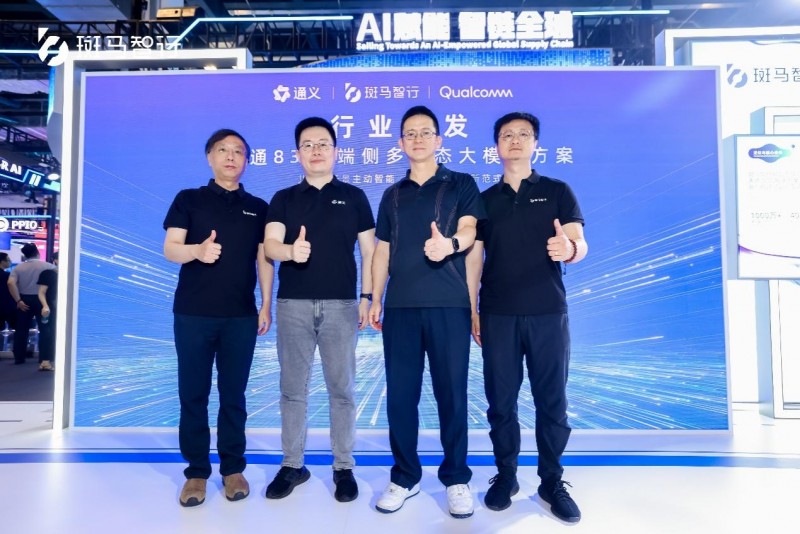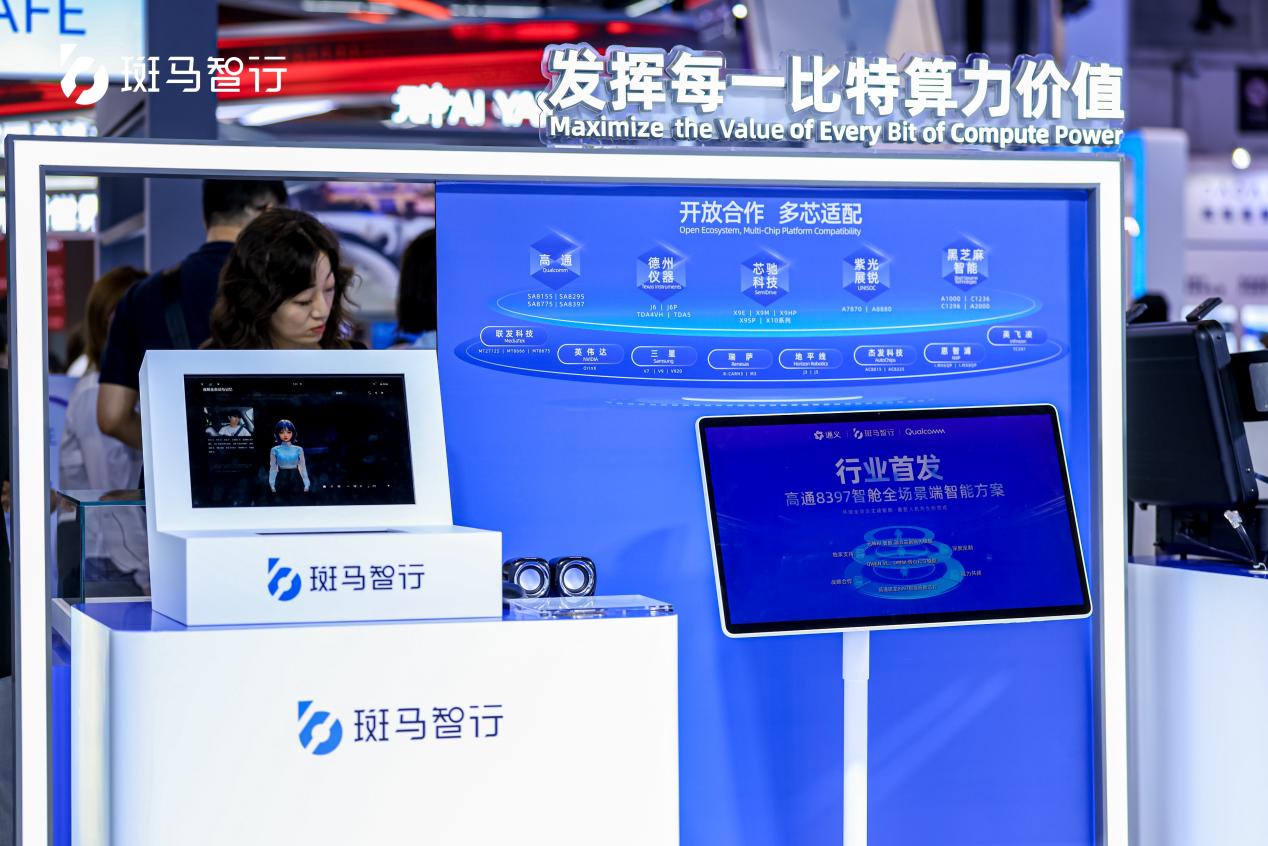Qwen, developed by China’s tech giant Alibaba, has once again reclaimed the title of the strongest open-source large model.
Just two weeks ago, startup Moonshot AI launched its Kimi K2 model and open-sourced it, surpassing DeepSeek to take the top spot among open-source models, an awkward moment for Qwen, which also belongs to the open-source camp.
However, on July 25, Alibaba made a powerful comeback with the release of its new Qwen-3 inference model. With significant performance upgrades, it regained the global lead among open-source models, rivaling top-tier closed-source models like Gemini 2.5 Pro and o4-mini, setting a new benchmark in open-source AI performance.
But Qwen isn’t the only piece Alibaba has placed on the AI chessboard. At the 2025 World Artificial Intelligence Conference (WAIC) that just opened in Shanghai, Banma – an Alibaba-funded global vehicle solution platform for automobiles – unveiled Yan AI, the industry’s first on-device large multimodal model (LMM) solution, powered by Qwen and running on Qualcomm’s latest Snapdragon 8397 platform. By running directly on the vehicle without relying on cloud computing, this solution enables the automobile cockpit to independently handle 90% of core tasks in the “perception-decision-execution” loop, paving the way for a new era of proactive, self-sufficient in-car intelligence.

Banma wins another gold medal for Alibaba in the AI era. Ahead of the WAIC opening, leading global market intelligence firm International Data Corporation (IDC) released its latest evaluation report on intelligent cockpit LLM capabilities. Among nine major new energy vehicle startups and AI companies, Banma Yan AI model achieved either top scores or full marks across six core use cases, including vehicle control, reading, and lifestyle, and was recognized by IDC as having initially reached L3-level cockpit capability. This positions Banma at the forefront of the industry and marks the arrival of a true AI era for intelligent cockpits.
If Qwen represents Alibaba’s reach in the LLM space, Banma embodies its true footing by turning AI into tangible, real-world applications. As the smart EV market enters the second half of its intelligence-driven competition, large models are increasingly being embedded into vehicles. Cars are no longer just transport tools but are becoming intelligent robots. In this context, Banma has become one of the most significant real-world expressions of Alibaba’s AI strategy.
Looking abroad, Elon Musk has a parallel strategy. He views both Tesla vehicles and Optimus as intelligent robots and is actively exploring the integration of his LLM startup, xAI, into Tesla to drive synergy. In fact, Musk has already brought Grok into Tesla’s onboard systems.
Similarly, Banma and Qwen – both under the Alibaba umbrella – are joining forces. The Banma’s industry-first specialized on-device model for smart scenarios is built on Qwen’s compact models like Qwen-VL and Omni, resulting in deeply integrated, end-to-end solutions.
Multiple industry research reports indicate that the intelligent cockpit market is entering a phase of rapid scaling, with competition shifting from basic feature stacking to deep ecosystem service operations. In the coming years, only companies with strong synergy across technology, ecosystem, and business will be able to maintain a sustainable competitive advantage.
Banma’s approach mirrors that of Qwen in many ways, as both emphasize ecosystem development and industry empowerment. Banma's key strength lies in its tight integration of software and hardware ecosystems.
In addition to adapting to the Qualcomm 8397 platform, Banma has also completed adaptation for NVIDIA’s Orin platform.During WAIC, Banma showcased cooperative adaptations with over 10 chip manufacturers and 30 chip platforms. Its Banma Hypervisor has already completed adaptation with leading domestic chipmakers such as Black Sesame Technologies and UNISOC, and has recently been selected by top Chinese automakers.

Banma’s innovation in technical architecture is another key factor in its industry leadership. Its industry-first on-device model tailored for intelligent cockpits, combined with a generative scene engine that enables edge–cloud collaboration, and native on-device AI agents, work together to power Smart to enable a generational leap toward proactive intelligence inside the vehicle.
At the WAIC exhibition, users were able to test real-time AI agent functions in IM Motors vehicles. Yan AI can proactively perform intelligent actions, like turning on the AC based on cabin conditions or recommending a playlist in traffic, based on environmental inputs, user status, and in-car behavior.
A highlight was the exclusive launch of Banma’s Local Life Agent, marking the first in the industry to fully integrate in-car scenarios with local lifestyle services. At the exhibition, users could experience futuristic scenarios such as ordering coffee via in-car voice command and having a robot deliver it to their vehicle, bringing Elon Musk’s dream of a truly intelligent Tesla café into reality.

Banma’s all-around leadership in the intelligent cockpit space has attracted the attention of automakers worldwide. Beyond enabling Chinese brands like IM Motors to go global, Banma has also formed partnerships with major international carmakers, including Volkswagen, BMW, Toyota, Honda, and Nissan, bringing Chinese innovation to the global automotive landscape.
As AI continues to reshape the future, Alibaba is advancing on both the model and application fronts. Banma is one of Alibaba’s most strategic plays in applying large models to real-world scenarios. With end-to-end leadership across technology, ecosystem, and business deployment, Banma has emerged as a flagship representative of “Chinese intelligence” in the intelligent cockpit space, working alongside Qwen LLMs to bring China’s AI solutions to the world stage.
Disclaimer: This article is reproduced from other media. The purpose of reprinting is to convey more information. It does not mean that this website agrees with its views and is responsible for its authenticity, and does not bear any legal responsibility. All resources on this site are collected on the Internet. The purpose of sharing is for everyone's learning and reference only. If there is copyright or intellectual property infringement, please leave us a message.
©Copyright 2009-2020 Startup Weekly Contact Us SiteMap